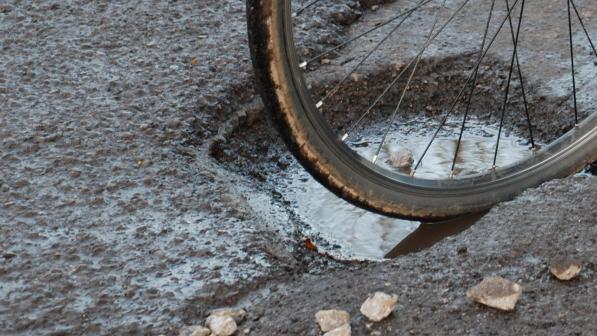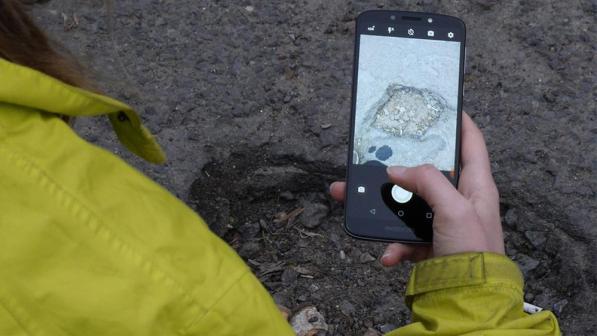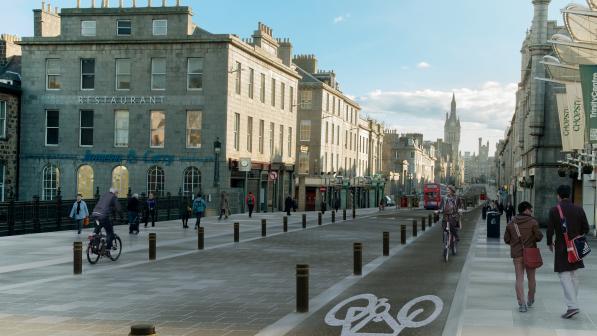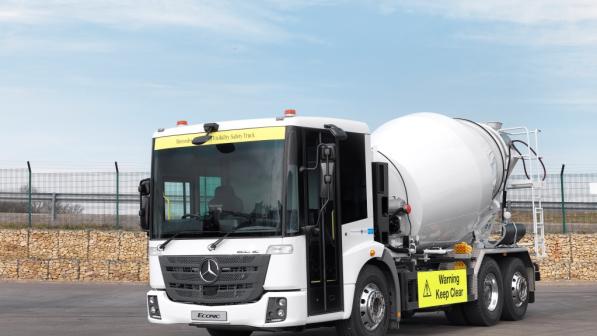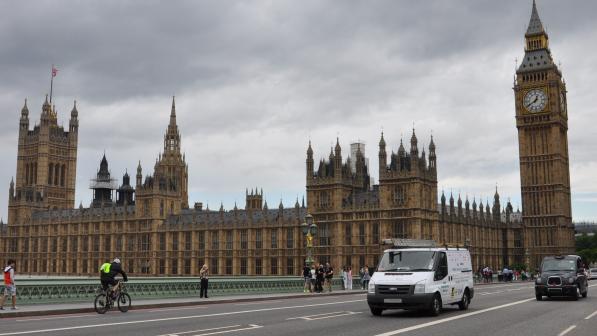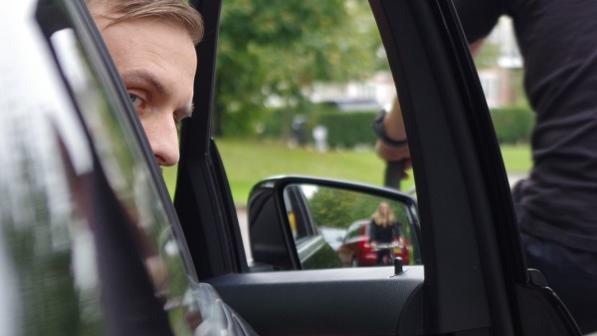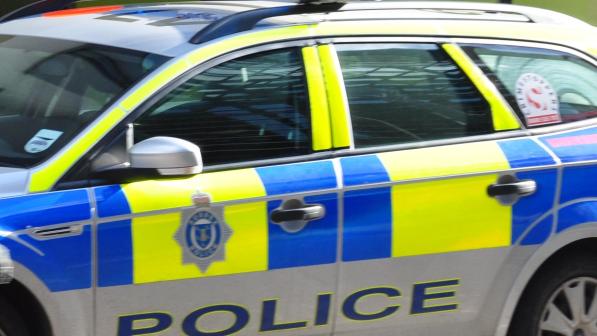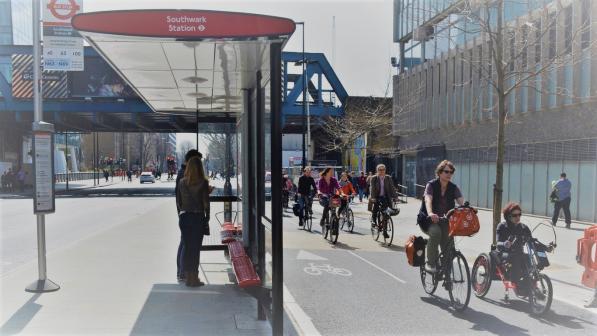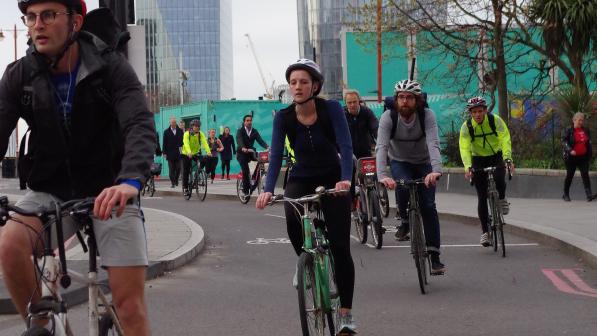Britain’s potential cyclists put off cycling due to traffic conditions and potholes

- YouGov poll of 2,000 GB adults finds close passes, potholes, large vehicles listed as top reasons why more people do not cycle
- Regional breakdown available
More than half of respondents (57%) to the YouGov survey said they were worried about sharing the road with lorries and large vehicles. Additionally, 56% highlighted worries about being close passed by vehicles and a further 56% said poor road conditions such as potholes were the main reasons they would be put off from travelling by bike in the UK.
Other concerns included:
- Crossing busy junctions and roundabouts with other vehicles (49%)
- Car doors being opened in their path while cycling (40%)
The research, released to coincide with Cycling UK’s submission to the Government’s “Cycling and Walking Investment Strategy safety review”, also found the following would encourage people to cycle more: separate cycle paths away from roads (e.g. cycle tracks in woodlands and parks etc.) (45%), segregated bike lanes (e.g. cycle lanes which use posts or curbs etc. to divide the road and cycle lane) (45%); and better road conditions (42%).
“The Government wants more and safer cycling, but as Cycling UK’s research shows, people who don’t currently cycle need change if they’re going to choose to cycle short distances rather than drive,” said Cycling UK’s head of campaigns Duncan Dollimore.
Cycling UK is calling on the Government to make fundamental changes in six areas, which the charity believes will help give more people the confidence to cycle more often:
- Changes to the Highway Code
- Safer vehicles, especially lorries
- Road and street design
- Enforcement
- Road traffic offences and penalties review
- Funding
Duncan Dollimore continued:
“The Government is being taken through the courts for failing its air quality commitments, casualties on our roads are going up, and our NHS is struggling with the burden caused by an inactive nation. More people cycling is part of the solution to all these problems.
“Cycling is still a minority activity in the UK with only two percent of all journeys made by bike. Those who do cycle put up with the potholes and dangerous traffic conditions daily and still continue. However, it’s not always pleasant and it’s no surprise most people do not consider cycling for their short every day journeys.
“In England in 2016, 64% of all trips between one to two miles were driven. Making cycling more accessible and safer will give people the alternative transport solution they need. Cycling UK’s ‘Cycle safety: make it simple’ explains how this can be achieved, simply and cost effectively, and we look forward to working with the Government to help bring about the long awaited cycling revolution the UK desperately needs.”
Notes to editors
- Cycling UK, the national cycling charity, inspires and helps people to cycle and keep cycling, whatever kind of cycling they do or would like to do. Over a century’s experience tells us that cycling is more than useful transport; it makes you feel good, gives you a sense of freedom and creates a better environment for everyone. www.cyclinguk.org
- All figures, unless otherwise stated, are from YouGov Plc. Total sample size was 2024 adults. Fieldwork was undertaken between 22nd - 23rd May 2018. The survey was carried out online. The figures have been weighted and are representative of all GB adults (aged 18+). The figures are available in the attachment below.
- The figure of 64% of all trips between one to two miles being driven is taken from the National Travel Survey 2016, Table NTS 0308 https://www.gov.uk/government/statistical-data-sets/nts03-modal-compari…
- Cycling UK’s response to the Government on how to make cycling safer is available here: https://www.cyclinguk.org/cyclesafety
Press contact information
For more information contact the national Cycling UK Press Office on 01483 238 315, 07786 320 713 or email [email protected]
